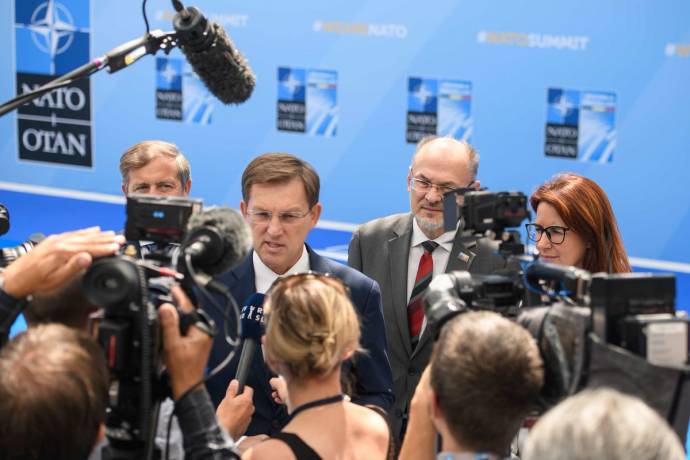Speaking to the press, Cerar said that the meeting was starting in a tense atmosphere due to criticism from US President Donald Trump, which he believes NATO leaders will be able to overcome with an open conversation.
The outgoing prime minister noted that the US president had been criticising the European allies over what he believed were too low defence budgets.
Trump said a day ahead of the summit that it was easier to talk with Russian President Vladimir Putin than with the NATO partners. He criticised Germany today for being a hostage of Russia because of the natural gas deals.
But Cerar believes that the NATO leaders will be able to calm the situation down. "I will try to contribute to this myself. It is in the interest of all of us that NATO stays united and effective," he added.
The US as a partner in NATO should also understand that it should not be looking for opponents but allies in the EU, he added.
According to Cerar, Slovenia remains a credible partner in NATO, as well as an EU member who will contribute everything it can in the fields of defence and security.
Slovenia is currently close to the bottom among NATO members in terms of the main goal of the alliance - allocating 2% of GDP for defence.
Evropa je partnerica in glavna zaveznica ZDA. Na #NATOSummit moramo z odkritim pogovorom umiriti napetosti. Vsem nam je v interesu enotna in učinkovita zveza @NATO. pic.twitter.com/eWmHI3rIt8
— dr. Miro Cerar (@MiroCerar) July 11, 2018
This year, the country is expected to earmark 1% of its GDP for the defence budget, with the share planned to be increased to 1.2% by 2024. Only Luxembourg, Belgium and Spain spend less on defence than Slovenia.
"Slovenia will have to take the NATO commitments seriously also in the coming years," Cerar said, adding that the new government should have an even more ambitions approach, while taking into account realistic public finance capacities.
"Every year we are contributing more, in nominal terms, to the development of our defence capabilities and we intend to do so in the future," he said, adding that both the nominal contribution and the share in GDP would increase in the coming years.
Cerar noted that because of a high rate of economic growth, the share remained small, while Slovenia was actually earmarking much more funds for defence than in the previous years in nominal terms.







